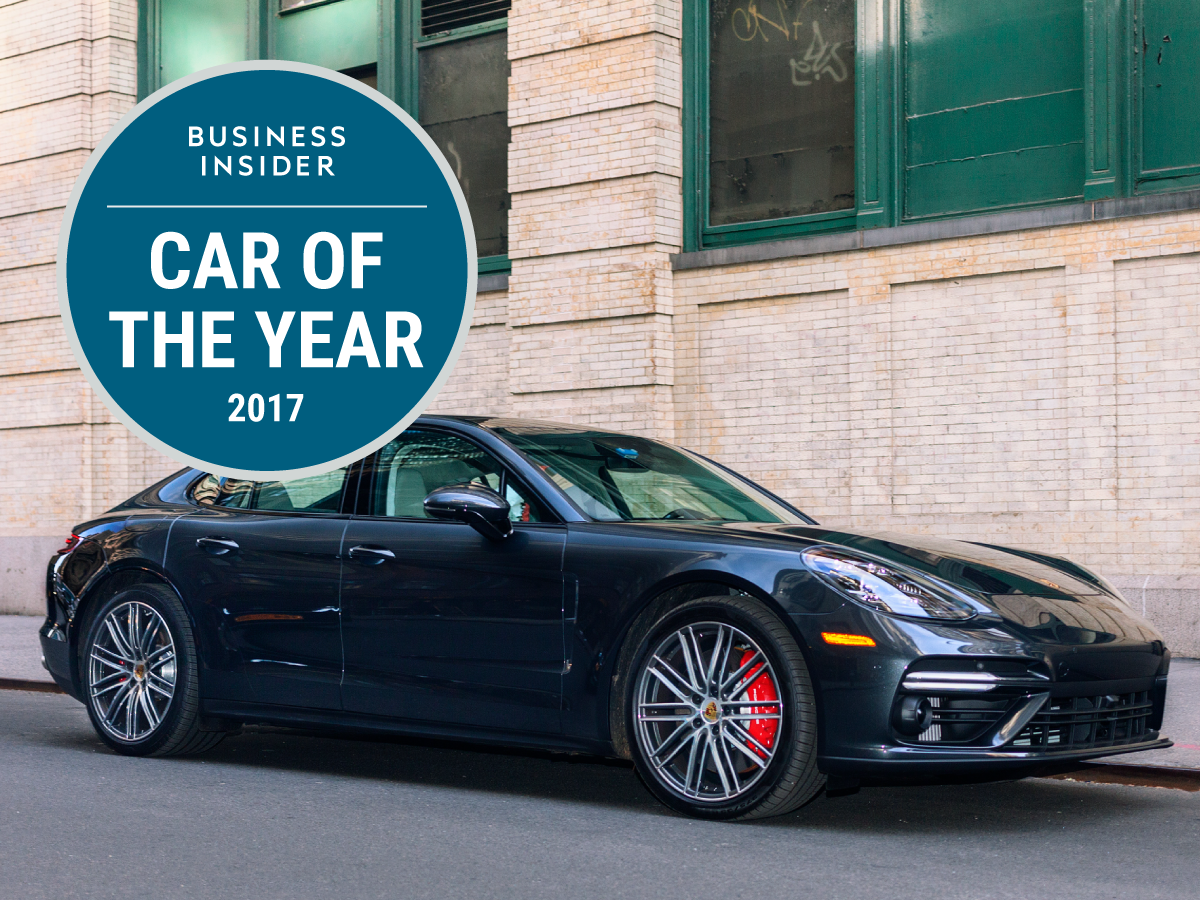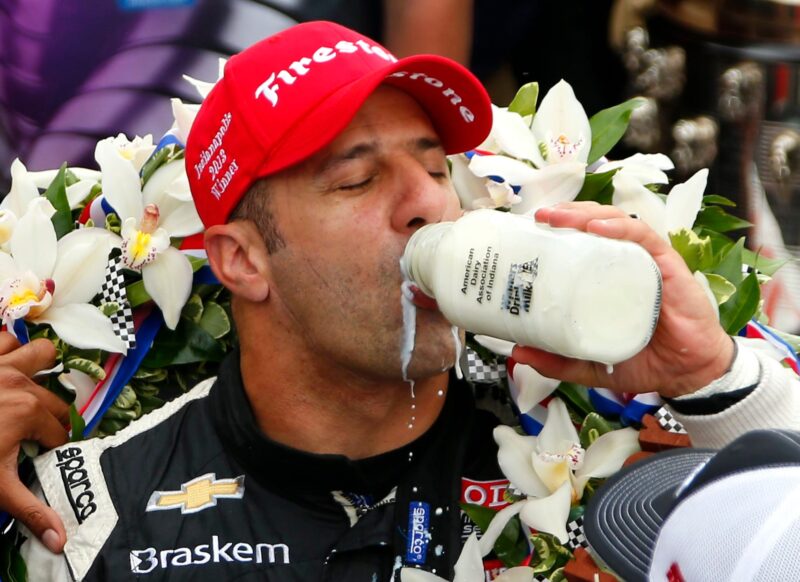- The Porsche Panamera takes the trophy for 2017.
- It beat out 14 other finalists, including the Chevy Bolt and Lexus LC 500.
- There are few cars in Porsche’s history that have been more polarizing than the Panamera. Its raised-fastback rear-end design and offbeat proportions have long been points of controversy.
- The luxury sedan might be the best-performing four-door on the market.
The Porsche Panamera is Business Insider’s 2017 Car of the Year.
This is the fourth year we’ve presented the big trophy. The Panamera joins illustrious company: In 2014, our winner was the Corvette Stingray; in 2015, the Volvo XC90; and, in 2016, the Acura NSX. This year the competition kicked up from 2016.
We sampled and reviewed more vehicles than ever, thanks to transportation reporter Danielle Muoio and deputy editor Cadie Thompson joining our ranks. News editor Bryan Logan lent a hand on the West Coast, too.
The Panamera had to beat 14 other finalists, ranging from perhaps the finest supercar on the market to a glorious machine that would appeal to James Bond. There were also extraordinary sedans, marvelous SUVs, a legendary roadster, and an all-electric masterpiece.
Our methodology is based on a handful of simple questions.
- Is there a strong business case for the vehicle? We are a business website, after all.
- Did our reviewers agree that the vehicle should be included? We have to come to a consensus, even though we might disagree on some particulars.
- Was the vehicle objectively excellent? There has to be a wow factor of some sort.
- Did the vehicle stand out from the sea of competition, particularly when it comes to technology? A Car of the Year finalist has to be special, and we're also a technology website.
- Can we strongly recommend buying or leasing the car? We demand to know whether we'd buy the vehicle ourselves if we had the resources.
To be eligible, all models must be new or have been substantially updated within the past year.
As a result, we've been blessed with a bountiful selection of cars spanning a broad spectrum of the market. In addition, all models must have been road-tested by at least two members of the Business Insider team to qualify.
Porsche takes the prize
We were fortunate in that we got to test two versions of the Panamera: the Turbo and the 4S. In both cases, we were blown away by the big sedan's luxury, poise, power, and style.
Yes - style. There are few cars in Porsche's illustrious five-decades-long history that have been more polarizing than the Panamera since it burst on to the scene in 2009.
Its raised-fastback rear-end design and offbeat proportions have long been points of controversy. Automotive journalists have not been kind. The Panamera's looks can be attributed to the need for all Porsches to look, well, like a Porsche.
In plain terms, all cars bearing the company's brand need to be instantly recognizable. That means they've all got to look like a 911. It's a blessing and a curse.
Instant brand recognition is worth its weight in gold for a car company. In spite of the controversy, the Panamera became a sales success. The first-generation Panamera was widely regarded as one of the finest performance sedans money could buy; the second-gen Panamera might be the finest performance sedan money can buy.
And you will need some money: The car starts at $85,000 and heads all the way up to $180,000. But with it, Porsche (part of the VW Group) has the auto industry's definitive lineup: the legendary 911 and its companion sports cars; the terrific Cayenne and Macan SUVs; and the magnificent Panamera, named for the Carrera Panamericana, a famous race run in Mexico in the 1950s.
An elevating machine
The Panamera is one of those cars that alter your consciousness, especially when you slip behind the wheel.
It's a cliché to suggest that a car can make you a different person, but that Panamera makes good on that promise. It looks good, feels good, sounds good. As with all great machines, the thrill is a combination of the visceral and the cerebral. Everything about the Panamera says quality and the engineering is beyond world class. When you drive the car, you know why many people think Porsche is the best automaker on the planet.
But the Panamera stays with you. It certainly did for us. During one of our test drives, our correspondent's significant other, when asked if she liked the Panamera, said, "We should just keep going for a few more hours." High praise from the wife of an auto journalist.
An astonishing year for cars
We'll be honest: 2017 blew our minds when it came to four wheels. We took a spin in the Tesla Model 3, we visited Italy and Utah to drive supercars, we explored cars that can sometimes drive themselves, and we even spent some time in completely practical sedans and SUVs that people like to buy in large numbers. There were pickup trucks. And more pickup trucks.
In the end, and after many hours of genuinely furious debate, we couldn't get the new Panamera out of our heads.
Yes, we might be headed into a future when it won't matter how gloriously bolted together and spectacularly styled your car is. You might not even want a car. And if you do, you might not be able to drive it. But until then, we can say there is something right in the world when something as great as the Porsche Panamera is available to feast upon.
It's exciting to announce the Porsche Panamera as Business Insider's 2017 Car of the Year!
Photos by Hollis Johnson. Graphic by Mike Nudelman.
Here it is — the new Porsche Panamera! Even though it's built on VW Group's new Porsche-developed MSB platform, you won't mistake for anything other than a Panamera.

See the resemblance! This is last year's model.

And have they changed that controversial rear end?

Yes, they have. Porsche increased the rake of the rear windshield, creating a smoother coupé look.

Smooth and sleek.
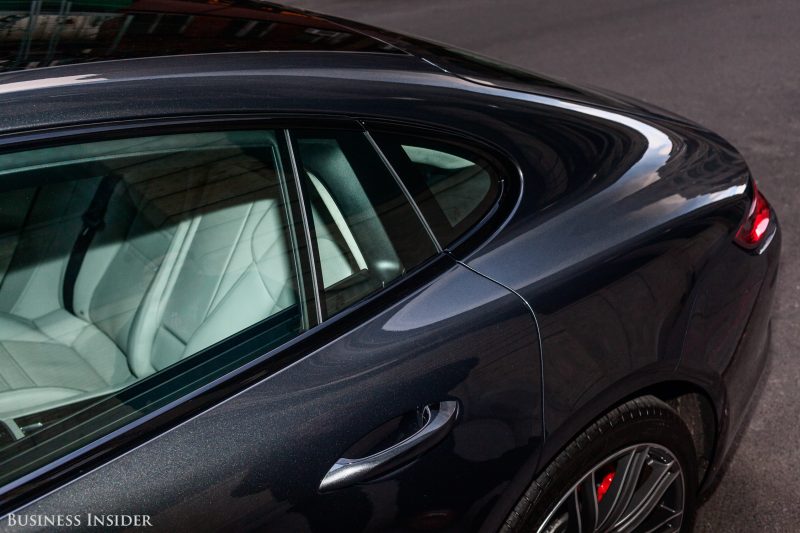
In addition, the rear fascia was redesigned to mimic that of the company's current-generation sports cars.

We got the chance to experience two versions of the Panamera during 2017. A Turbo and the ...

... 4S.
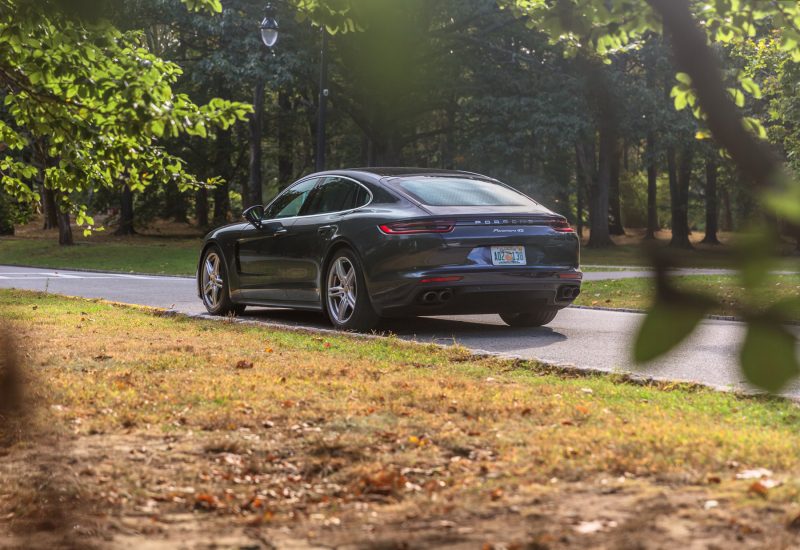
But first some history.

Although the Panamera was the first Porsche sedan to make it into production when it arrived in showrooms for the 2010 model year, the company had actually been mulling over the idea for some time. More than two decades ago, Porsche built the 989 prototype to be a sports car for the whole family. The 989 was powered by a 4.2-liter, 350-horsepower V8 engine, and Porsche claimed it could hit a top speed of 173 mph.
The 989's DNA is strong.
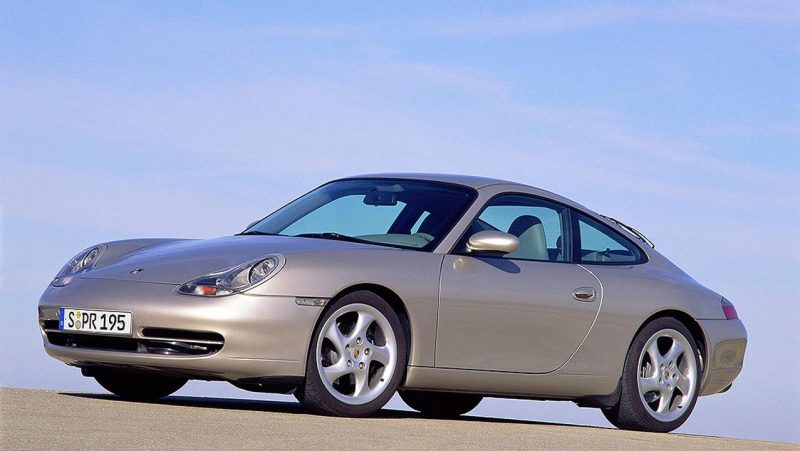
The car was scheduled to enter production by 1995 but never made it. During the early '90s, Porsche had fallen on hard times and was on the brink financial ruin. As a result, the 989 was axed. Instead, Porsche turned its attention to the Boxster and the 996 - the first water-cooled version of its iconic 911 sports car. Not all was lost. As you can see, a lot of the 989's DNA made it into the 996.
In the marketplace, the Panamera competes directly with other ultra-premium performance sedans like the Aston Martin Rapide S ...
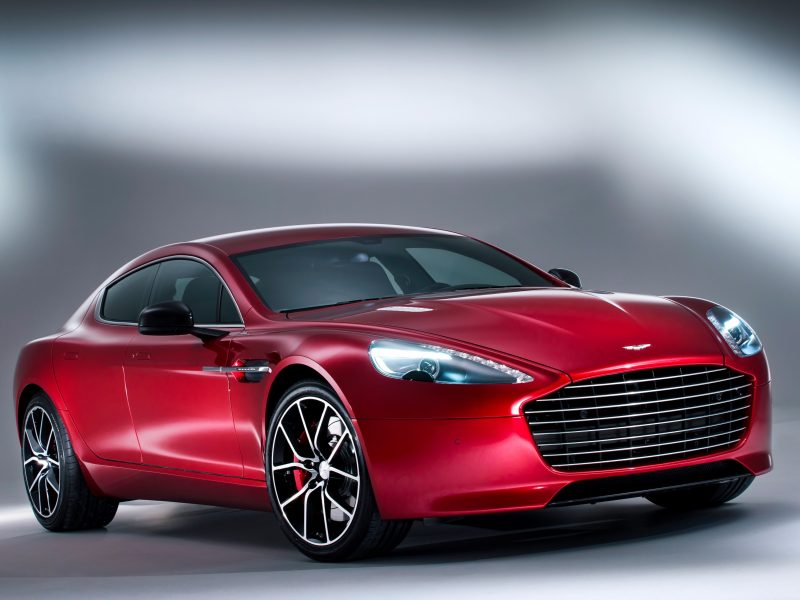
The Maserati Quattroporte and ...
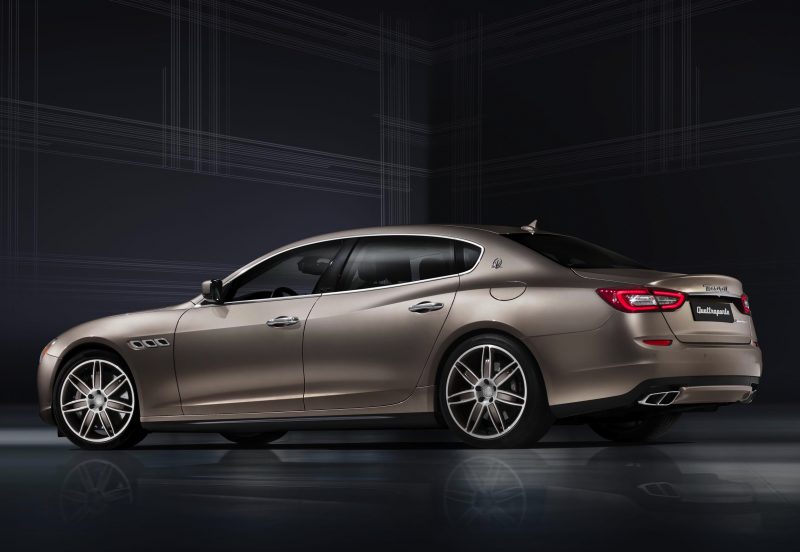
Its corporate cousin, the Bentley Flying Spur.

Under the hood, the Panamera Turbo packs a serious punch.
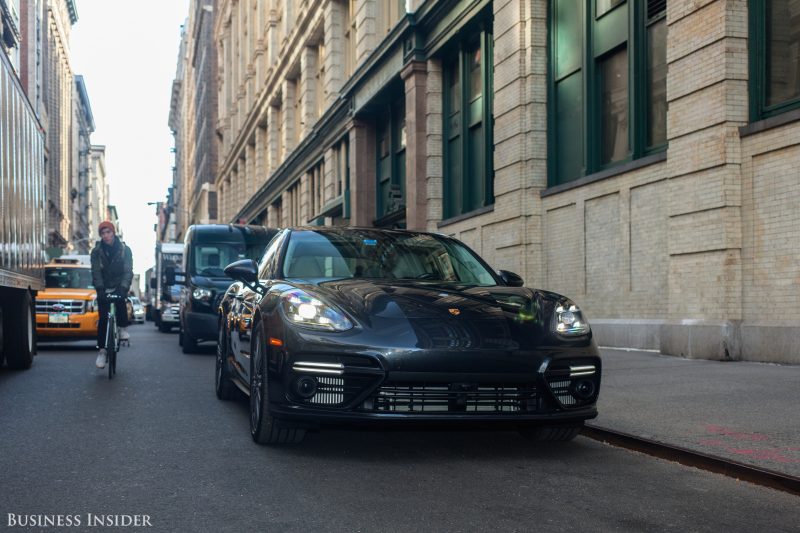
Our Turbo test car came with 550-horsepower, twin-turbocharged V8 engine while ...

The 4S brought a 2.9-liter, 440-horsepower, twin-turbocharged V6 to the party.

The Panamera is also available with a 330-horsepower V6. And there are two performance hybrid powertrains to choose from, one with 462 horsepower and another with 680 ponies.

All Panamera's come standard with a new 8-speed twin-clutch PDK transmission, while all but the base Panameras come with all-wheel drive.

According to Porsche, the Panamera Turbo can hit 60 mph in a blistering 3.4 seconds and reach a top speed of 190 mph.
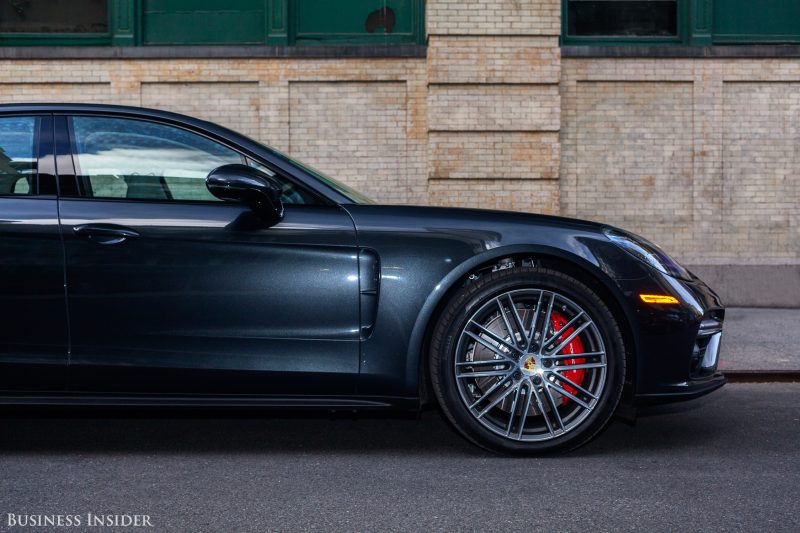
The Panamera 4S can 60 in just 4.0 seconds with a top speed of 179 mph. Although we didn't do any metered performance testing, those number sound on point.

Step inside its cabin and be prepared to be wowed. The Panamera marks the debut of the all-new Porsche Advanced Cockpit that replaces traditional buttons and knobs with touchscreen and touch-sensitive surfaces.

The Panamera's cabin is roomy, something to be expected of 16-and-a-half-foot-long, 4,400-pound luxury sedan. The interior is covered in fine leather while the metal and carbon accents give a premium luxury feel without compromising a sporting DNA.
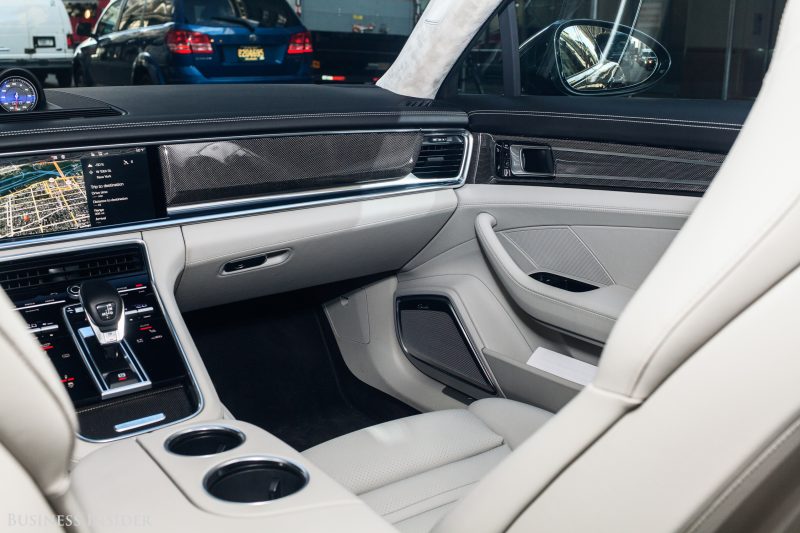
In front of the driver is Porsche's signature center analog tachometer flanked by a pair of seven-inch digital displays.

In addition, the Panamera is loaded with a host of driver's assistance including adaptive cruise control, traction-management systems, adjustable driving modes, active aerodynamics, lane-change assist, and even night vision.
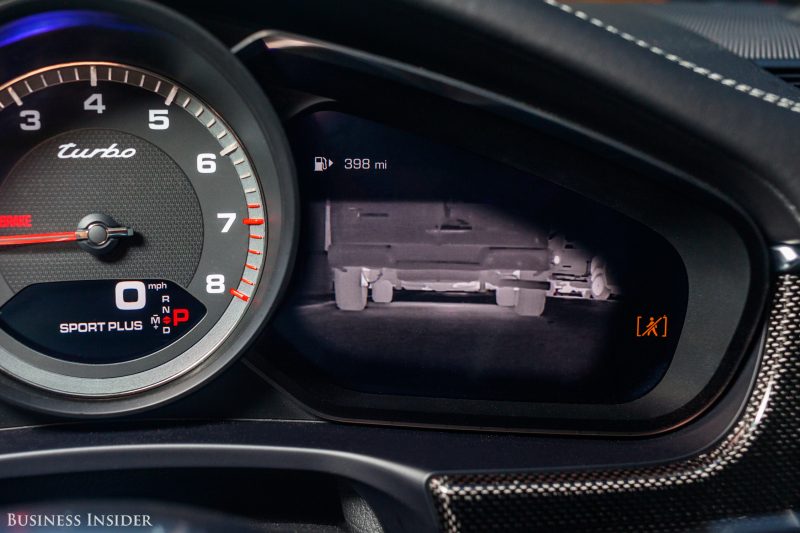
The Panamera also features Porsche's new LED Matrix headlights.

The PCM system is a major leap forward for the German sports-car maker. It marks a major improvement in capability and usability over the previous infotainment system.

In fact, PCM is really the nerve center for the entire car with controls for everything from the Panamera's active aerodynamics to its climate control at your fingertips.

You even control the car's air vent via the touchscreen.

It features full Apple CarPlay integration and is equipped with connect app capabilities.

Overall, the Panamera's new infotainment system is a success. It's quick, responsive, and packed with features. But the system is complicated to use. It's an unfortunate byproduct of Porsche trying to deliver so much functionality in such a small amount of real estate.
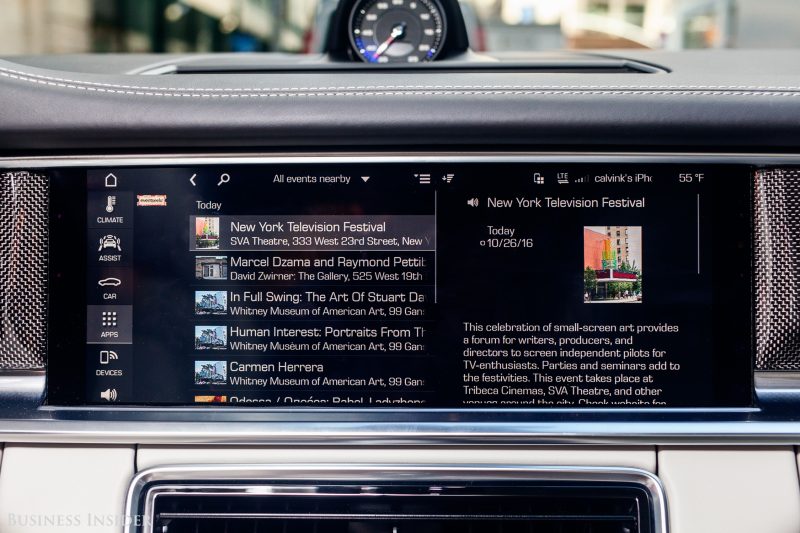
Another portion of the Porsche Advanced Cockpit is a touch panel center console. In a major departure from the first-gen Panamera's festival of buttons, the second-gen center console is virtually devoid of switchgear. Unlike previous applications of touch panels by other carmakers, Porsche has managed to make this work. The controls are intuitively laid out and precise enough under most driving conditions.

There is also a duplicate set of touchscreens and touch panels for the rear seat.

Speaking of the rear seats, they are remarkably comfortable. Because of the center console, there is only room for two, but those two passengers travel in style and comfort. Incredibly, the raked rear roofline offers sufficient legroom for most people not playing in the NBA.
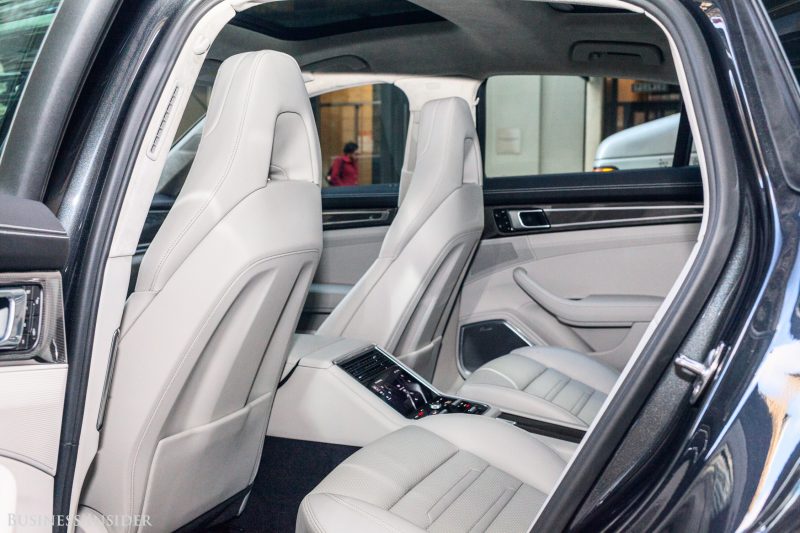
Outback, the Panamera's rear hatch opens to expose 17.6 cubic feet of cargo room. With the rear seat folded down, that number increases to 52.6 cubic feet of capacity.
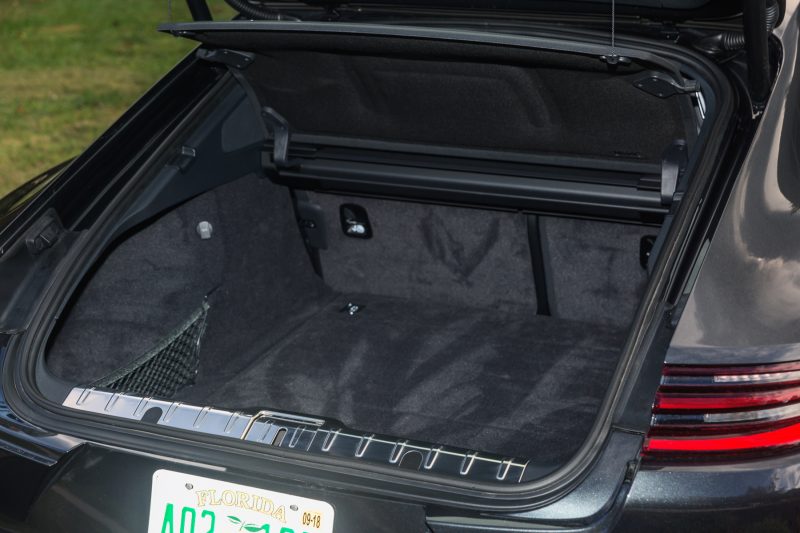
Shut the rear hatch and you'll see the Panamera's new rear fascia including its nifty IKEA-esque expandable folding spoiler.

So what's the Panamera like to drive?
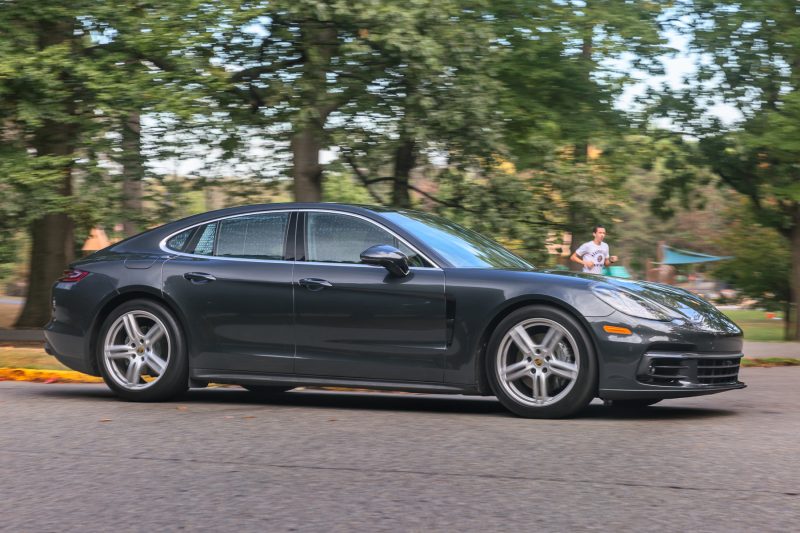
Ben Zhang's take
The new Porsche Panamera has a lot to live up to in terms of driving experience. While its predecessor wasn't always the best to look at, it offered up driving excellence every time.
For me, the new Panamera delivers. The brute force of the Turbo's V8 pairs effortlessly with the precision of the PDK gearbox to deliver gobs of power on demand with no turbo lag to speak of. On the highway on-ramp 60 mph happens in a blink, and the speedometer will easily glide its way into the triple figures if you don't pay close attention to your right foot.
The 2.9-liter turbo-six found on the 4S delivers a slightly different experience. While the Turbo overcomes the forces of nature by flexing its V8 muscles, the 4S, while still enormously powerful, takes a more subtle approach. The 440 horsepower is ever present but requires a more thoughtful approach from the driver, whereas the Turbo feels like more of a point-and-shoot affair.
In the corners, the big Porsche sedan feels solid, as if it were hewed from a single block of iron. The chassis feels tight and the car feels composed at all times. Only under extreme acceleration does the rear end feel a bit nervy as it digs for traction. In most daily driving conditions, the Panamera feels like it's riding on rails.
With that said, my colleague Matt DeBord, who liked the Panamera, felt that the Turbo didn't quite drive like the four-door 911 he was expecting. He also felt you couldn't drive the Panamera in the same way that you could drive the brand's iconic sports cars. Although the 4S went a long way in changing that opinion.
Our verdict.

The new second-generation Porsche Panamera is an absolute gem of a car. The combination of old-school driving pleasure, state-of-the-art tech, and refined luxury make it a compelling option for anyone looking for a vehicle in this genre.
Even with a new chassis and electronics, the new Panamera is more evolutionary than revolutionary. In keeping with the previous car's exquisite driving dynamics, Porsche was very careful not to throw away the baby with the bathwater when it gave the luxury sedan a much-needed makeover.
But with the makeover, the Panamera now has the matinee-idol looks to go with its world-class ability. And with this, Porsche has created the finest sports sedan in the world. It's certainly not cheap, but boy is it good. If you are one of the blessed few who can afford a new Porsche Panamera, don't think - just do it. Your life will be better for it.
